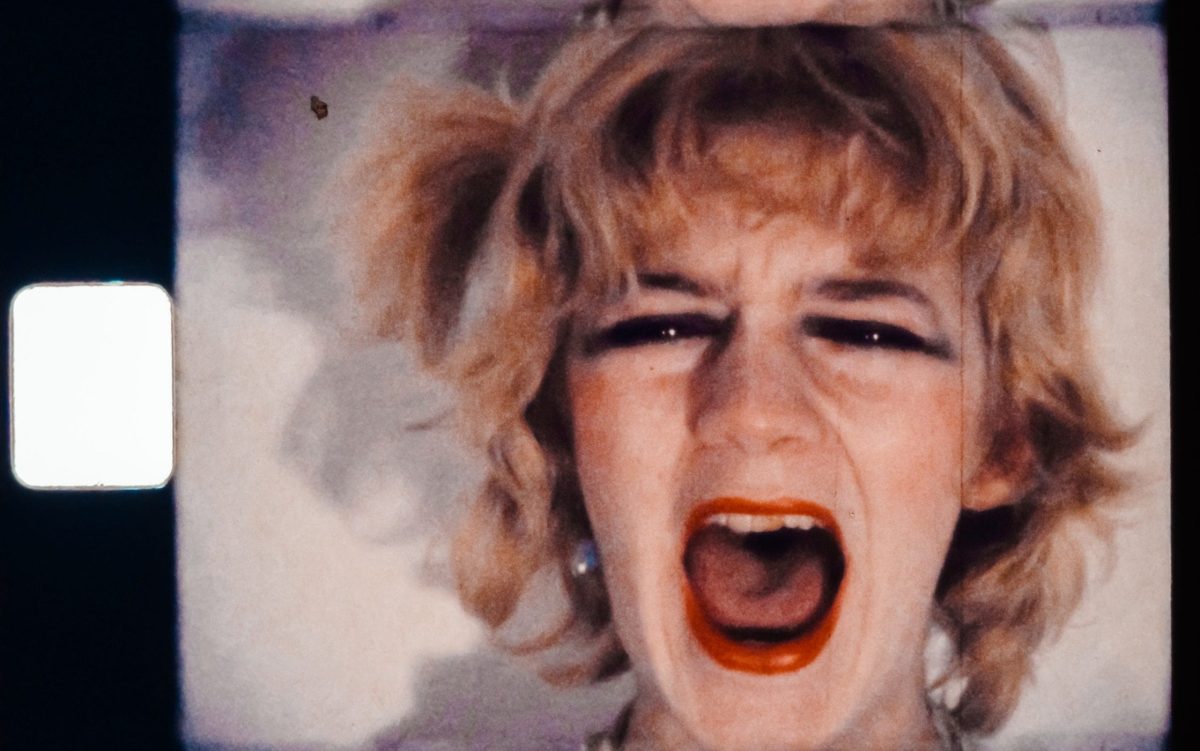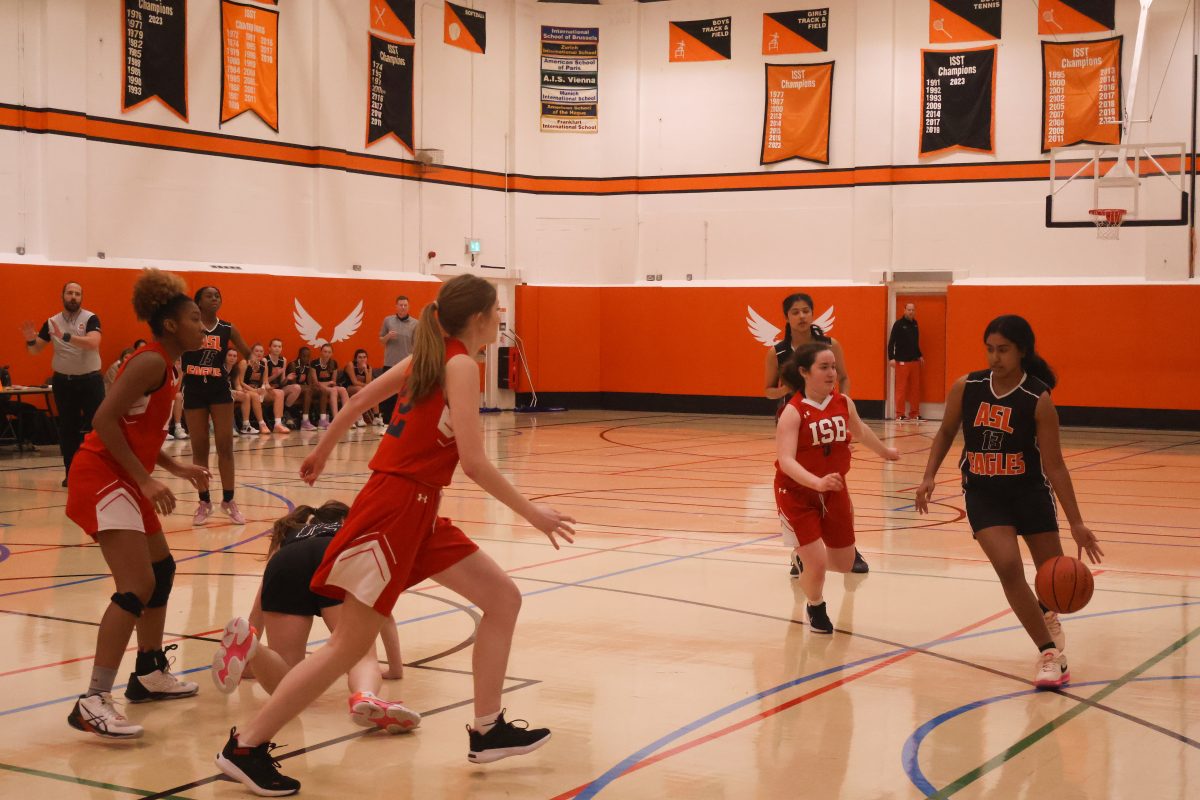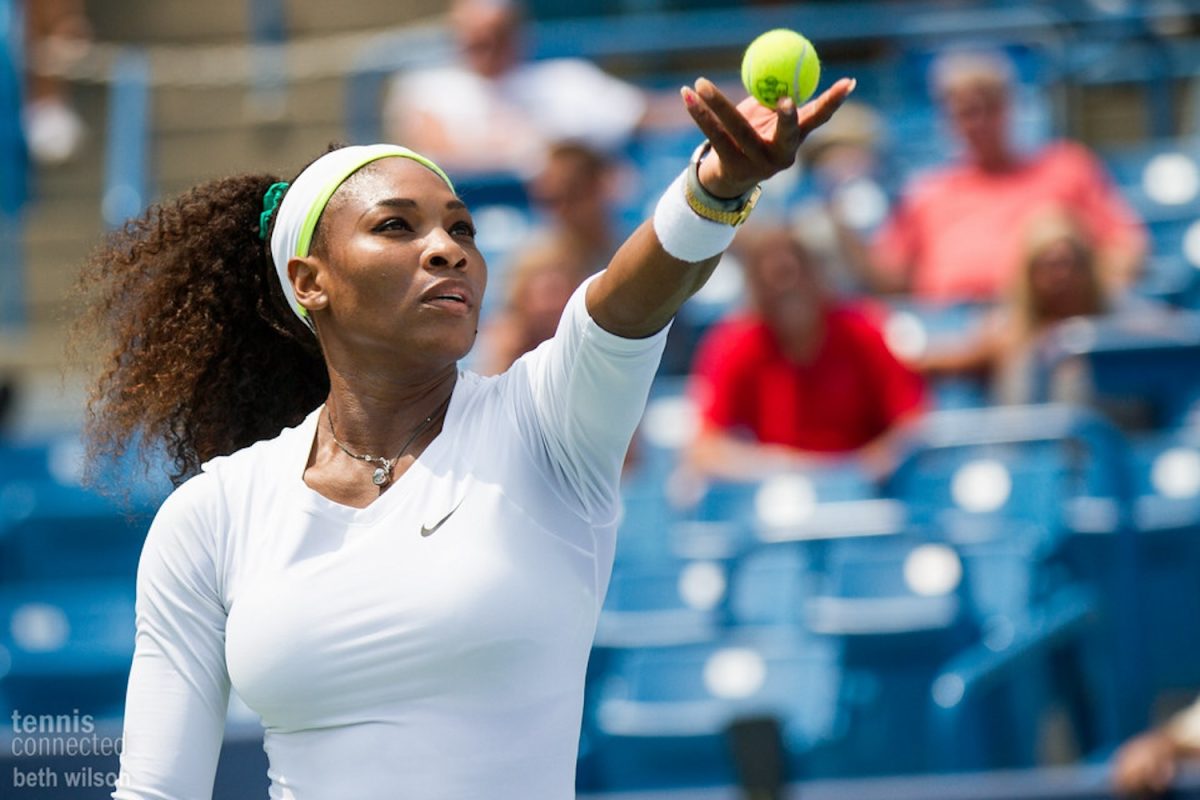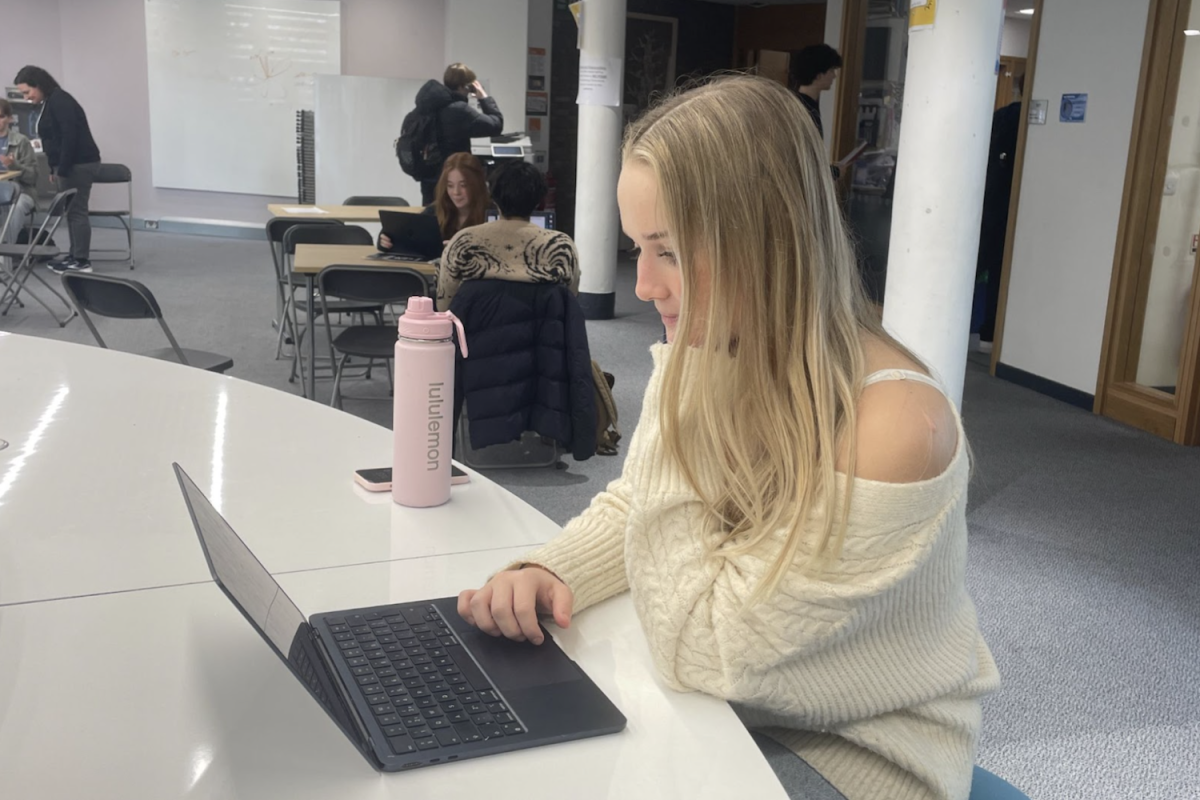While High School Social Studies Teachers Sana Shafqat, Becky Mason and Shrita Gajendragadkar had different pathways leading to their current teaching roles, one thing they share in common is their love of the humanities and education.
For Shafqat, she said she pursued a double major in history and English in college. Later, Shafqat said she taught English at Karachi Grammar School in Pakistan; however, the lure of history drew her back to the subject.
“I felt like when I was teaching or writing about history, it was almost like I had to make a case like a lawyer in a way and so that sort of, you know, made it more fun for me,” Shafqat said.
Meanwhile, Mason, who was a student at ASL, said she realized she wanted to be a history teacher after taking AP European History and finding deep gratification in the subject matter.
“I was sitting in AP Euro at the end of my senior year of high school and that was when I was like, ‘I guess maybe I should start thinking about the future’ and that was when I was like, ‘I can do this, I like this,’” Mason said. “That’s sort of the first time it struck me that I wanted to get into teaching and also humanities.”
In college, Mason said she took numerous arts and humanities courses, and teaching seemed the logical next step after graduation.
“Since I already had teaching in mind, that was the natural gravitation for me in terms of a subject,” Mason said.
Similarly, Gajendragadkar said she was gripped by a fascination for the humanities in high school, loving to study Latin and Greek as “they felt like a puzzle piece.” She said she pursued comparative literature and art history in college, and her teaching career ensued unintentionally.
“I literally just saw a flier for part-time art history, part-time Latin teacher, and I was like ‘It’s all my favorite things,’” Gajendrakadkar said. “I got the job and, I mean, it was so accidental.”
Meanwhile, Tamara Herzberg (’27), who is interested in pursuing the humanities in the future, said her interest in the field stems from her family’s fondness for history and politics.
“I’ve always been kind of surrounded by history books and my family as a whole,” Herzberg said. “We’ve always valued checking the news, knowing what’s going on in the world.”
In addition, Herzberg said she “really enjoyed” her social studies classes last year, finding delight in analyzing “patterns that we might see over history.”
Grace Blanton (’25), who plans on studying political science or international relations, similarly said the subject makes her “very happy,” and she “grew up with it around my entire life.”
“I obviously have a very deep passion for it,” Blanton said.
Moreover, Blanton said she loves her United States History class because it has provided her with deeper insight into the topic and “expand[ed] her curiosity for the subject.”
Although Gajendragadkar temporarily left teaching to attend graduate school, she soon returned to teaching because she liked it more than the research and studying that came with graduate school.
“I found it a little underwhelming in the end, and I had already been teaching high school for five years and had loved the connections with both my colleagues and the students,” Gajendragadkar said. “So I came back to high school teaching because I think it was more fun.”
Likewise, Shafqat said she briefly left teaching to attend graduate school and, while working at the Aga Khan Foundation in Washington, D.C., found herself missing her days as a teacher.
“It was more like a nine-to-five job and it just did nothing for me,” said Shafqat. “That just didn’t give me that fun of connection and the thrill of just teaching the actual material.”
Looking forward, Mason said she strives to make learning “less and less exclusive” by tapping into different aspects of learning since “showing that you’re interested in history isn’t only through an essay or isn’t through the presentation that I’ve assigned.”
Furthermore, Shafqat said she believes conveying her own excitement about history to her students helps propagate a sense of enthusiastic fervor.
“I’m embodying some of what my own professors and high school teachers did, which is just being enthusiastic and showing your enthusiasm and love for it,” Shafqat said.
Additionally, Shafqat said she finds it crucial for there to be “student choice in multiple places” to encourage inclusivity, such as the research paper that Grade 10 students write during Semester II of their World Civilizations II course.
Similarly, Gajendragadkar said she values students’ right to explore different cultures to promote inclusivity. Gajendragadkar said she developed links to the ancient cultures she studied that “felt like they were my people, more than anyone in my contemporary life” since “nobody owns the past.”
“It’s important for me to convey that to students every year that they can explore and connect with and value any culture on earth,” Gajendragadkar said.
Herzberg said there seem to be more STEM elective options than humanities ones at the school, a potential hurdle for students interested in the humanities.
Furthermore, Blanton said the male-dominated political sphere poses challenges for women interested in politics.
“A challenge that I’m going to have to look more into as soon as I kind of start to immerse myself into that course is like the overall kind of male-dominated industry that it is, being a politician and higher-end government official,” Blanton said.
Ultimately, Gajendragadkar said students should stick to their passion regardless of the obstacles they may encounter along the way, and be open to exploring different pathways.
“It’s really great to keep your mind open to different pathways that you might come across,” Gajendragadkar said. “If you are willing to be resilient and persevere, you can really find a rewarding career and, you know, provide meaning for your life in that way.”





